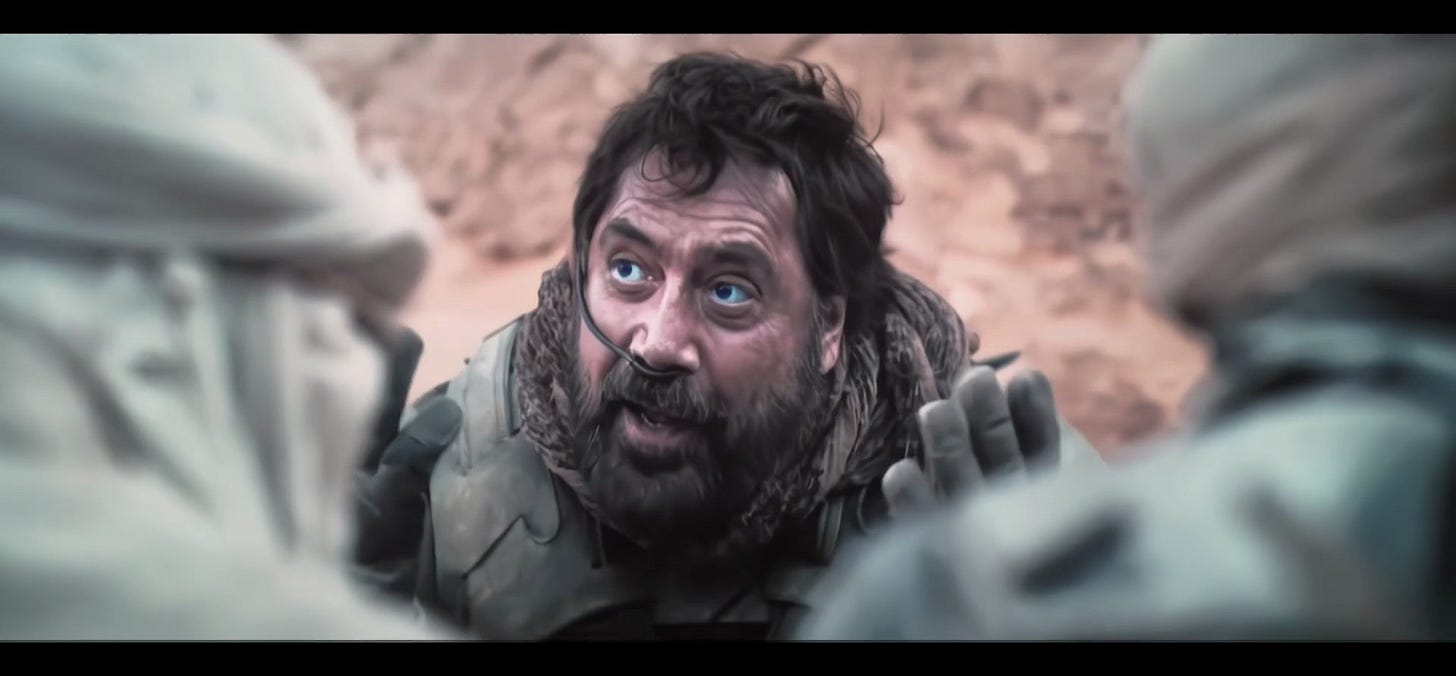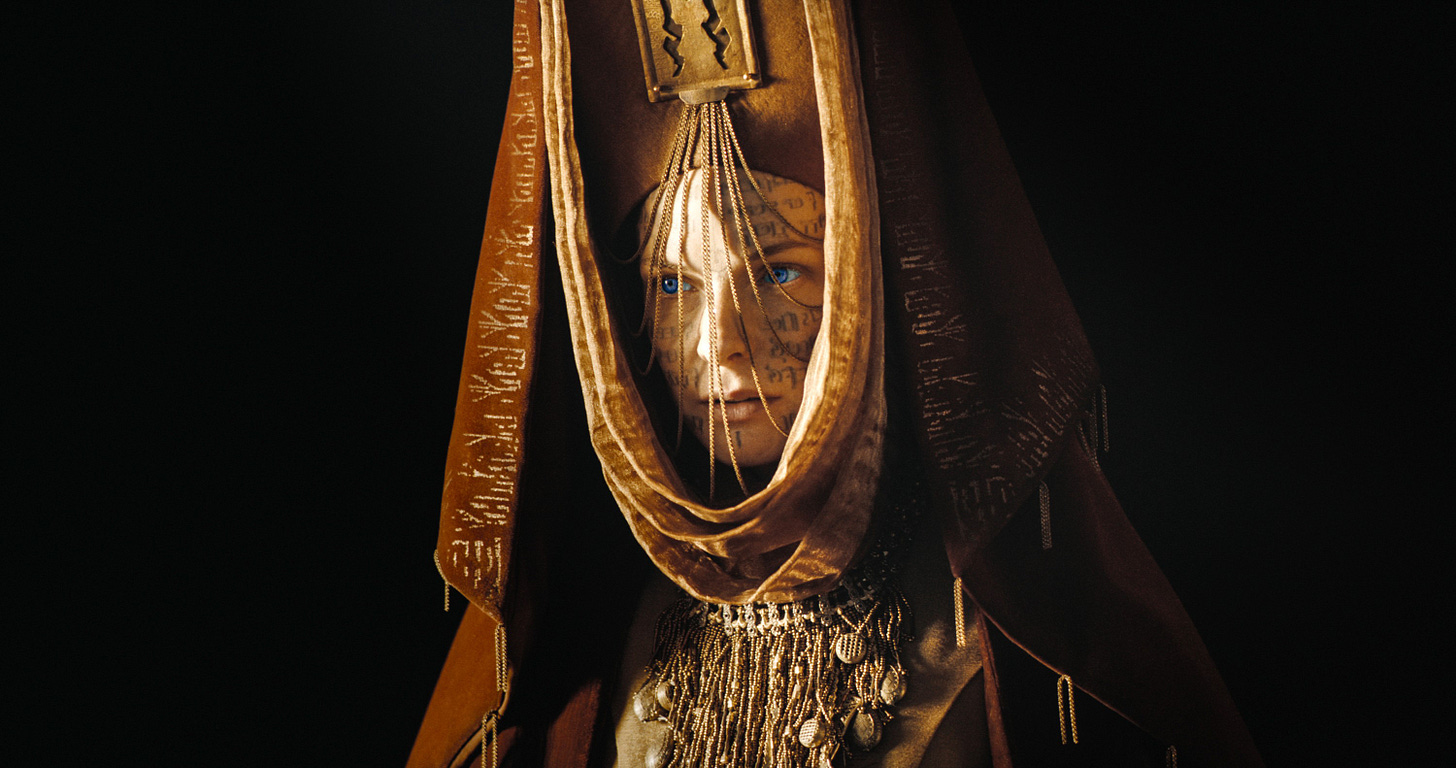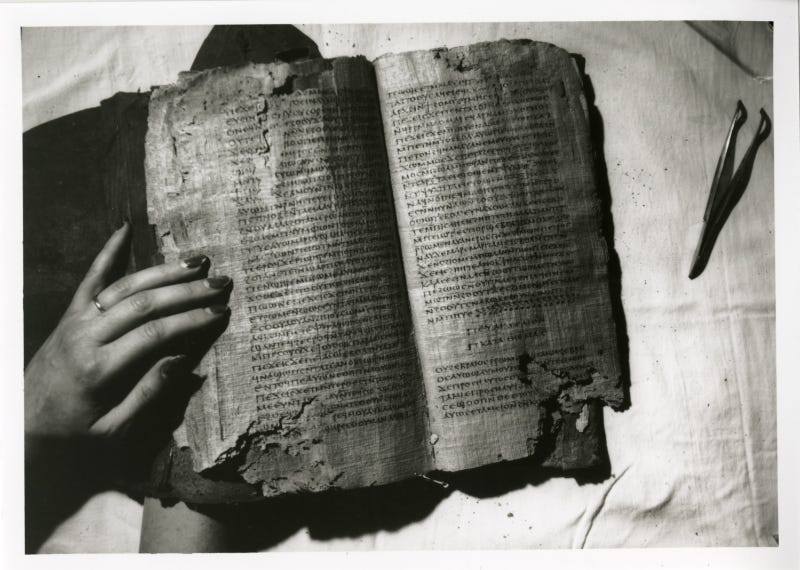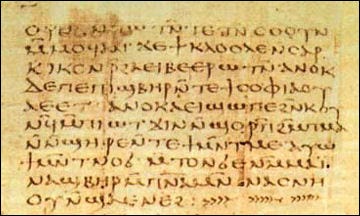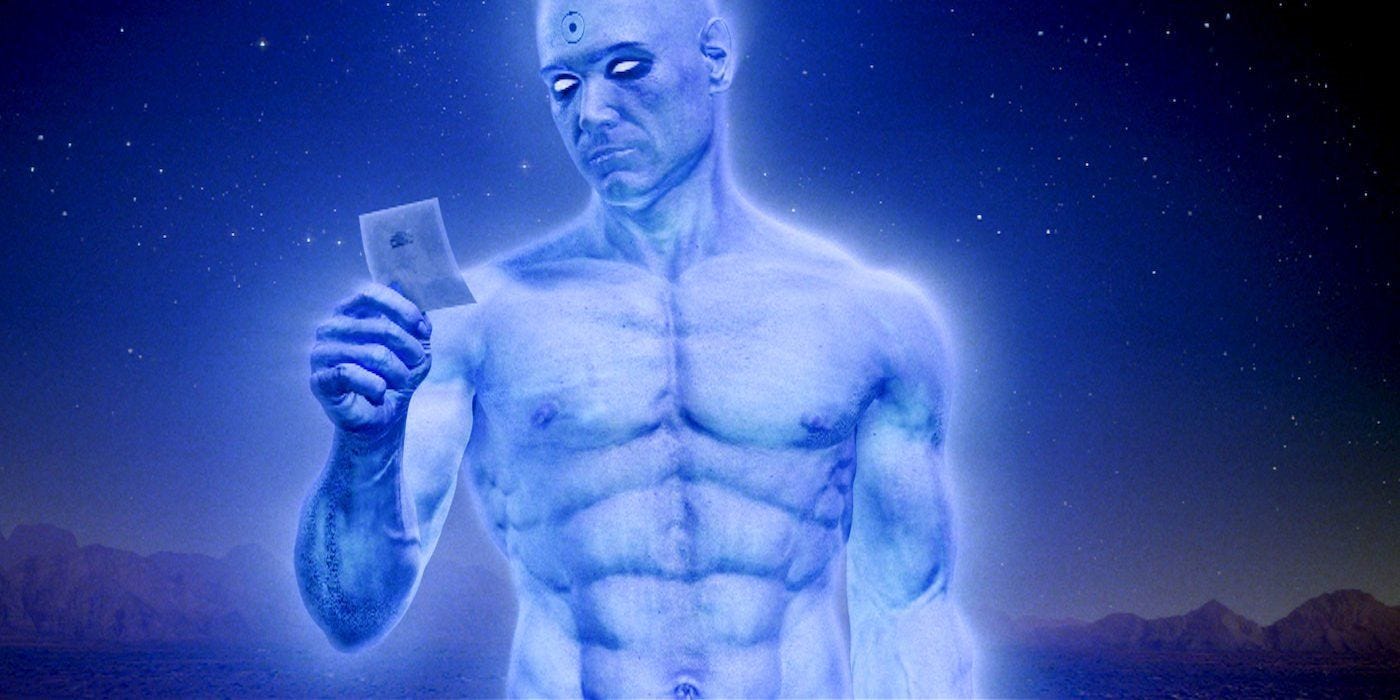A Picture Perfect It Ain't
Why Dennis Vellenevue Dune, Part II is more like Star Wars than well all of the Star Wars sequels
I have always loved the desert. One sits down on a desert sand dune, sees nothing, hears nothing. Yet through the silence something throbs, and gleams... Antoine de Saint-Exupéry, The Little Prince
Last Friday I finally convinced my 14 year old son to go see what I expected to be the most glorious epic that fully explores most, if not all of the themes from the original Dune novel by Frank Herbert. The first movie, while a little slow to develop, built the book’s universe and established the foundation from which the second movie was supposed to evolve into the grandiose vision of deep storylines supported by mesmerizing action set pieces.
The film is beautiful, it “is one of the finest spectacles you'll see in a cinema for some time.” It is a striking visual tour de force that simultaneously pushes the envelope with CGI while juxtaposing the special effects eye candy with lavishly stunning backdrops and then turning the tables by contrasting the stoic and dreary but still beautiful surroundings with the colorful costumes and ceremonies.
The Harkonnen troops, clad in all black, float up the rock formation using suspensors powered by Holtzman field generators; the Fremen explode out of the sand…
…if this was not a Dune movie and Mad Max Fury Road did not exist, I would be contemplating whether this was the most visually revolutionary movie of this century.
“Mad Max: Fury Road” is not just a film; it’s a masterclass in visual storytelling. Each frame, each sequence, and each design choice serves a purpose, collectively creating a narrative as potent visually as it is through its dialogue and plot. The Art of Visual Storytelling: Lessons from ‘Mad Max: Fury Road
Alas, this is supposed to be a Dune movie, “in the sequel, Villeneuve offers a deeper exploration of Arrakis and its inhabitants, the Fremen, whose lives are changed by the arrival and rise to power of Paul Atreides, an outsider whose actions dictate the fate of their society,” and despite my praise for the film’s stunning cinematography and visual effects as intended, it is a disturbingly horrible movie. The embattled 1984 David Lynch version is actually significantly more faithful to the actual story and the spirit of the novel (and the entire series).
WARNING: SPOILERS ABOUND!!!!
Let’s get a some basics out of the way:
Alia is not born (!!!) in the movie.
The Guild Navigators are gone.
CHOAM is gone.
Count Fenring is gone.
Piter de Vries is gone.
Thufir Hawat mysteriously disappears after the first movie.
If you think the above presents enough of a challenge, Villeneuve clearly wanted to up the ante by aimlessly making Lady Jessica very forcefully promote Paul’s flirtation with his potential powers. In the book, she was keenly aware of the risk embedded on the path to gain these and the danger that they would possess, the book version of Jessica desperately tried to prevent Paul’s ambitions. While I actually liked the often criticized change to Chani’s character, Villeneuve failed miserably, because this fiercely independent and clearly strong woman, was wasted as a character, just as was Stilgar, who simply became a caricature of a blindly faithful fanatic and an occasional comic relief, the exact opposite of what he was in the novel.
To put it bluntly, Villeneuve cuts almost everything that Frank Herbert was exploring when he wrote Dune. It is a novel of ideas for which the narrative is simply a vehicle, a way to deliver. Villeneuve stripped all of the ideas out, keeping the hollow abridged narrative and gave it to us as a beautiful box the ideas came in.
On paper, Dune has everything a science fiction franchise needs: mystic matriarchs with obfuscated morals and mission, villains galore, a coming-of-age story, and the colossal worms that shake the sand like a T. Rex in Jurassic Park. Yet, after seeing both of Villeneuve’s interpretations, clocking in at nearly five and a half hours, all that’s left is the kitschy pulp of the original saga: “the tragedy of House Atreides, a noble family with great hair. […] the Harkonnen, the bad, bald enemies of the Atreides clan, Paul, who has prophetic powers, wants vengeance on the Harkonnens but also wants to liberate the Fremen, especially after learning their way of life from the rugged Chani (Zendaya). This entirely too simplistic and watered down take raises a multitude of questions. Questions that are raised without any knowledge of the Dune universe. Aaron Bady, in Slate, gets a great start:
If the Fremen have lasers, why don’t they just shoot the sand harvesters and run away?
Why don’t they use their sandworms until the last battle?
Wouldn’t it make more sense to fight the other great houses on Arrakis itself, where they have sandworms, rather than board ships off-world to go off to war?
If Paul has to invade the galaxy at the end, why bother marrying the daughter of the emperor he just deposed? It didn’t pacify the other great houses. And why didn’t it? His threat to destroy the spice fields seems like a pretty good one.
Did the emperor kill Paul’s dad, Leto Atreides (Oscar Isaac), because “he believed in the rule of the heart, but the heart is not meant to rule,” or just because the Reverend Mother (who seemed bummed about it) told him to?
Is there any point to all the diplomatic subterfuge and maneuvering if literally everyone just does what the nearest Bene Gesserit tells them to do?
Most of all, there is absolutely no explanation for the inexplicable heel turn that Paul takes closer to the end of the movie. Villeneuve’s version of Paul spends more than two hours of the screen time convincing Chani, Jessica, Stilgar, the audience, and pretty much anyone who would listen that he cannot go to the deep South as that leads to some terrible things, like some vague holy war. Villeneuve did an incredible job portraying Paul’s visions of the future jihad in the first movie. However, this time around, we get some ambiguous glimpses of some sickly looking people crawling over the dunes. If these are the horrific visions of the Fremen jihad, much less the Kralizec and the Typhoon Struggle at the end, then I am left to wonder why Paul is so terrified. Even if we overlook the lack of any substance to Paul’s fearmongering, on the surface he clearly believes the horrors to come. Yet, there’s ultimately no explanation, no reason given for his sudden change of heart, his acceptance of Mahdinate and his predetermined, prescient destiny.
When I walked out of the movie theatre, I wanted to start with a detailed thrashing of the film’s unfaithful interpretation of the novel and the galaxy-size plot holes these created. Someone has done a much better job than I can ever dream of, and I can’t recommend it enough, if you are concerned at the daunting volume, I’ll share one of my favorite passages from Read Max:
“Villeneuve has an immense talent for creating striking images, but I personally find him most compelling in the moments when, somewhere amidst the monumental tastefulness of his visual sensibility, a small bit of Quebecois asserts itself. These deadly sex-harlequins at the Fucked Up S&M Triangle Stadium--only a French Canadian could have imagined them, and their presence is a reminder that the Dune movies are only a few degrees removed from a massive Cirque du Soleil production.”
Instead I’ll focus on a couple very specific points. First, while there are some accounts that Herbert really reimagined Native Americans as Fremen, it is true only through some incredibly subtle subtext. Fremen are unapologetically children of Zensunni Wanderers and in all the ways are founded in the Berbers.
In Villeneuve’s interpretation, Fremen are dressed in flowing abaya-like clothing, with practical keffiyehs covering faces that are often juxtaposed against the desert backdrops. Arabic terms like “Lisan al Gaib” and the aforementioned “Mahdi” appear throughout the movie. Villeneuve said:
“I tried to be as faithful as possible to the images I had in my mind when I read the book when I was young. This idea that the world of the Fremen would be kind of inspired by culture from North Africa and the Middle East — culture that I deeply love by the way, because it’s a very complex world — there was this idea that there was something powerful that will come out from Africa in Frank Herbert’s mind. And I tried to respect his ideas. Which is why I did the casting the way I did. And I feel truly that I’m right in doing it this way. It feels authentic, it feels honest, and true to the book.”
I believe Villeneuve when he says this, but I believe that he means it literally. It was a homages to the young Dennis, a boy, feverishly reading Dune late at night and picturing the vastness of the desert. Furvah Shah, in a piece for Cosmopolitan UK, writes that she was frustrated as a Muslim viewer with the lack of onscreen MENA talent in major roles while watching the sequel. “From the use of beads and prostration in prayers by the Fremen, to the almost-Arabic language, phrases pulled from religious texts and the wearing of veils, it felt like ‘Dune’ takes a heavy amount of inspiration from Islam, Middle Eastern and North African cultures yet simultaneously erases us from screen,” she writes.
In a recent New Yorker piece, Manvir Singh, an assistant professor of anthropology at the University of California, Davis, breaks down how Herbert’s novel was filled with Arabic, yet the films’ linguist David J. Peterson expunged much of that from the Fremen’s language of Chakobsa for “believability.”
Singh writes how two particular Arabic excisions stand out across the films. First, Herbert’s use of the term “jihad” in the books shifted to “holy war” in the films. The second major change is for Paul’s rallying cry “long live the fighters.”
“In the book… the phrase ‘Long live the fighters’ is written as ‘Ya hya chouhada,’ a reference to a celebratory chant from the Algerian War of Independence, which Herbert renders in Frenchified Arabic. This line, more than any other, connects the Fremen’s struggle to recent independence movements, turning them from outer-space sand people into portraits of anti-imperialism,” Singh explains.
While the reference to the Algerian War of Independence likely would be lost on the audience in 2024, it remains inexplicable why the word jihad that appears 36 times in the first Dune novel is never mentioned in the movie. Is that political prudence in the face of the current state of affairs in the Middle East or is it something more sinister? If jihad was the only word erased from the movie, I might have thought it was the former, but somehow even the first name of the 81st Emperor of the House Corrino, Shaddam, was deemed too offensive or too risky to be mentioned in the movie even once!
Khaldoun Khelil, who has written plenty on topics related to Dune,says erasure of MENA influences in the sequel creates a caricature out of the Fremen culture and consequently significantly weakens the novels anti-colonial message.
“Even the word Fremen comes from Amazigh culture. How can you learn anything about the Fremen while erasing source material? You can’t learn anything about them because there is an editorial decision being made where their Arabness cannot exist. The problem for the movies [and] the director’s vision and his perspective is that he did his best to scrub the serial numbers off of everything that was Arab or Muslim in the story, and that had an unintended consequence of also scrubbing off some of the anti-imperialist messaging. {…] he has his own agendas. In the case of ‘Dune,’ Villeneuve is expressing his personal discontent with fanaticism and those who exploit it and this superseded ‘Dune’s’ other themes in his interpretation… If the Fremen are boiled down to exploited fanatics, it strips them of not only agency but it ignores what they’re really fighting for. They’re fighting for their home. Arrakis. Dune.”
To quote the master, this bring me to the second treachery. Above all else, one constant theme of the novel, and the series, is consequences of science, an ecological understanding of world in which human agency is embedded in almost unknowably vast and complex systems of order: a theme that sounds all too real today. The novel's origin story helps illustrate Herbert's environmental intentions.
In the novels, an unwavering vision of an ecological paradise clashes with the more conventional understanding of history. Herbert’s deeply rooted interest in ecology often merged with his belief in the dangers of political messianism, and he wrote Dune to warn people about the failures of the “great men,” along with modern age’s overflowing confidence in its ability to transform the world. Yes, the novel is overflowing with a multitude of existential ideas, from general semantics and psychedelics to decolonization, eugenics, altered states of consciousness and the developing countries’ revolution against imperialism, sex and sexual deviancy, racial consciousness, artificial intelligence and yet it is unmistakably about ecology.
“…man inflicts himself on his environment. That is . . . Western man.” Frank Herbert, in an interview to UC Fullerton in 1969.
Villeneuve’s five hours of Dune barely scratches the surface of what Frank Herbert managed to encapsulate into roughly 800 pages. Herbert soaks us in all of the details -sometimes unnecessary - anything and everything from the delicate balance of intergalactic politics and socioeconomics, to the way personal shields fill up with stale air because the heat of battle doesn’t allow for the proper exchange of gases; if you read Dune at least once, you are intimately familiar with how much focus and attention Herbert pays to the theme of ecology (and even more so in the later books).
During a press conference following the release of the first Dune, Villeneuve connected his film to climate change, saying that the book is "a prediction of what will happen" in the 21st century and about "survival." You'll have to take his word for it. Villeneuve does occasionally tap into the source material's environmentalism through visual storytelling. In one shot, Paul is stranded in the deep desert, where he spots what looks like a long-eared desert mouse, licking sweat off its ears to stay hydrated. They exchange a look, each seemingly surprised by the other's ability to survive in the arid environment.
The movie is full of absolutely stunning shots like this that underscore the ecological theme, but that’s all they are, eye candy. Villeneuve does succeeds in showcasing drylands as places full of life and beauty, rather than sites of just desolation. However, even if you were to look at the Rotten Tomatoes page, you’ll quickly see that the adaptation's ecological undertones eluded most critics. It doesn't help that deserts are rarely the setting for so-called environmental movies, lest you count Mad Max as one.
Villeneuve prioritizes visual aesthetics and world-building at the cost of the book's core ideas. The environmental subtleties are so subtle that they get lost. In a 2021 interview, Villeneuve acknowledged that he "just skimmed the surface of some ideas that will be approached deeper in the second movie." Is he saving it for the third installment??
Throughout both Dune films, various characters continuously refer to a prophecy hailing the “Lisan al-Gaib” or “voice of the outer world,” a messianic prophet who will restore the lush forests that once covered Arrakis: “The Lisan al-Gaib will change the face of Arrakis. He will bring back trees; he will bring back a green paradise.”
Is Muad'Dib's death to be followed by the moral suicide of all men? Is that the inevitable aftermath of a Messiah? Frank Herbert, Dune
However, as both Paul and Chani suggest in the movie, the prophecy (if not the entire Fremen religious system) was sown thousands of years earlier by the Bene Gesserit’s Missionaria Protectiva. The books version is much, MUCH more nuanced, where BG’s Missionaria Protectiva simply enhances already existing beliefs, customs and traditions to provide reach soils for future prophecies to be exploited. Villeneuve’s entirely too simplistic take of a prophecy initially deployed as a somewhat cynical political tool actually come true, does hint at one of the saga’s core theme: is there a difference between prophecy, prescience, and prediction? Is Paul fulfilling a prophecy or wielding it to his advantage? And is there a difference?
There’s plenty on the interwebs that discusses the core issue of prophecy, prescience, and prediction. Because the novel is so complex, a significant portion of this discourse is entwined with other themes of the book, Herbert had to go out of his way in Dune Messiah to spell it out to the thickheaded that in fact Paul was not a White Savior, going as far as forcing a silly parallel when Paul compares himself to Hitler after admitting the responsibility for the death of 62,000,000,000 people. In a 1969 interview, Herbert directly presented Dune as a critique of Lawrence of Arabia and other examples of western exploitation:
We’ve [“western man”] set out our missionaries to do our dirty work for us, and then come along behind them with the certain belief that we are right in anything that we do, because God has told us so — God and the person of the avatar.
The context is Herbert’s suggestion that John Campbell rejected the sequel to Dune, Dune Messiah, because Campbell held to a “western” notion of the myth of individual triumph, as opposed to stories of broader social, collective movements.
The difference between a hero and an anti-hero is where you stop the story. If you are true to life… the story goes on, because human beings go on. Now you can confine your story to one individual, one therefore - as far as John Campbell is concerned - story begins with birth and ends with death. If you are dealing with larger movements,… then there is no real ending, it’s just a place where you stop the story… The man must recognize the myth he’s living in, because the creation of an avatar is a myth making process. We’ve done it in recent time: Look at what’s happening to John F. Kennedy1, who was a very earthy, real, and not totally holy man….
“One treachery remains…”
Fascist love Dune2. Villeneuve’s adaptation was so highly anticipated among the Christian nationalists, that sites like the Daily Stormer began poring over the trailers for signs of deviation from their pet interpretations of the novel. For the ChristoFascists, Paul stands as the ideal of a sovereign ruler who violently overthrows a decadent regime to bring together a single imperium or ethnostate. Elon Musk adores the novel. Dune ranks as one of Richard Spencer’s favorite novels.
I fully think that what Villeneuve cuts or simply misses from the original novel will continue to fuel the wet dreams of the fringe, and the fringe liberal takes that completely miss the point will only help. The official explanation of Paul’s villainy in the movie is that it’s unavoidable: once he goes to the Deep South and drinks the Water of Life, Paul tells Jessica that everything he is about to do is necessary and impossible to avoid—the “narrow path” he must navigate if they are to survive. This simplistic take undermines the core issue at the intersectionality of prophecy, prescience, and prediction. In the novels, Leto II, his son, sets the humanity on the “Golden Path,” which and I quote, will make Paul’s “jihad seem like a picnic on Caladan by comparison.” If we assume that Villeneuve’s simplistic and inexplicable version of Paul is right3 I’m not sure what it could mean to the question of whether Paul is the villain: can one be a villain in a world where choice and freedom are illusions? Herbert, speaking through Harq Al-ada , formerly Farad’n of House Corrino, says:
“Either we abandon the long-honored Theory of Relativity, or we cease to believe that we can engage in a continued accurate prediction of the future. Indeed, knowing the future raises a host of questions which cannot be answered under conventional assumptions unless one first projects an Observer outside of Time and, second, nullifies all movement. If you accept the Theory of Relativity, it can even shown that Time and the Observer must stand still in relationship to each or inaccuracies will intervene. This would seem to say that it is impossible to engage in accurate prediction of the future. How, then, do we explain the continued seeking after this visionary goal by respected scientists? How, then, do we explain Muad’dib?”
Paul, even with his Bene Gesserit training, was not capable of holding the weight of alleged omniscience, knowledge of everything, path and future. Rejecting that, he saw prescience as a tool to be used basically to avoid and rely on non-prescience to live, as Jessica explains to Farad’n during his training, Paul “didn’t really see the future, he saw the processes of creation and its relationship to the myths in which men sleep.” One of Paul’s last appearance in the series, highlights this perfectly when he delivers his sermon as the Preacher:
Muad’Dib showed you two things: a certain future and an uncertain future. With full awareness, he confronted the ultimate uncertainty of the larger universe. He stepped off blindly from his position on this world. He showed us that men must do this always, choosing the uncertain instead of the certain.”
To Paul, the lesson he wished to sink into the religious zealots of Arrakeen: “Abandon certainty!” It was a complete rejection of prescience and prophecy. “Completion equals death! Absolute prediction is completion..is death!”
The overly simplistic narrative of the movie strips away the nature of this conflict and feeds into the rich tapestry of ChristoFascist wet dreams where Paul is a Nietzschean Übermensch with heightened awareness and transcendent abilities, who challenges the established order and seeks to shape the future that transcends societal norms and moral constraints to assert individual will as a life-affirming racial ethic. I won’t link to any of the deeply abhorrent takes on this, rather I’ll focus on taking this a step further.
Herbert, very much like many of his contemporaries in the science fiction community, clearly grounds a significant degree of his discourse in Gnosticism4. Looking through this prism, it becomes easy to see that Kwisatz Haderach is not just another interpretation of Jungian archetype of The Hero, but rather a representation of the Gnostic Demiurge.
Demiurge (/ˈdɛmi.ɜːrdʒ/, from Greek demiurgos, “craftsman”) is given many names in the Gnostic scriptures, but the three most common are Yaldabaoth, Samael, and Saklas. Within the dualist Gnostic discourse, more often than not, the material universe is evil, while the non-material world is good. The figure of the Demiurge, slightly varies within different denominations, generally though, he is an eternal being responsible for fashioning and maintaining the physical universe. Some Gnostic denominations perceived the demiurge as malevolent due to his creation of the evil of the material world, others view the Demiurge as the equal power to the benevolent creator, thus providing the balance of good/evil in the universe; in others, including the teaching of Valentinus, the demiurge is simply ignorant or misguided; and in some, the Demiurge is simply a fulcrum of omniscience and omnipotence where the nature of the world dictates that that the Demiurge is simultaneously omnibenevolent and omnimalevolent.
In the Gnostic creation myth, the heaven was all that existed until a divine entity named Sophia tried to conceive on her own, without the involvement of her heavenly partner or the consent of God. Sophia gave birth to a son that was the product of the rebellious and profane desire that had arisen within her. Sophia’s son was the demiurge. The Gnostic text Reality of the Rulers describes demiurge as an androgynous being, an “arrogant beast,” while the Secret Book of John adds that he had the body of a snake and the head of a lion, with eyes like lightning bolts5. Sophia disowned and cast him out. Castout, not unlike the Jacurutu, the demiurge, gave birth to the archons or rulers, who were like him and could help him administer the material world. He then created the material world.
In Judaism, it was an established tradition to split off particular faculties of God from God himself and credit those lesser divine beings with having assisted God in the creation of the world, for example in the eighth chapter of Proverbs and the twenty-fourth chapter of Sirach. Christianity inherited and extended this tradition, such as when the first chapter of the Gospel of John identifies Christ with God’s Word and gives him an indispensable role in creation. I won’t spent more time on Gnosticism and Western traditions, but I do wan to point out, that before writing this essay I had to look into the question of whether Islam, which has very clear and very significant influences across the entire series, has absorbed any gnostic traditions. Feel free to skip the next few paragraphs as these are not directly related to Dune, either the book or the movie. From Wikipedia:
In Islamic thought the cosmos includes both the Unseen Universe (Arabic: عالم الغيب, Alam-al-Ghaib) and the Observable Universe (Arabic: عالم الشهود, Alam-al-Shahood). This dualism between the Creator and the creation, rather than between spirit and matter.
Al-Ghazali, in The Incoherence of the Philosophers, defends the Ash'ari doctrine of a created universe that is temporally finite, against the Aristotelian doctrine of an eternal universe. In doing so, he proposed the modal theory of possible worlds, arguing that their actual world is the best of all possible worlds from among all the alternate timelines and world histories that God could have possibly created.
Fakhr al-Din al-Razi (1149–1209), in dealing with his conception of physics and the physical world in his Matalib al-'Aliya, criticizes the idea of the Earth's centrality within the universe and "explores the notion of the existence of a multiverse in the context of his commentary" on the Qur'anic verse, "All praise belongs to God, Lord of the Worlds." He raises the question of whether the term "worlds" in this verse refers to "multiple worlds within this single universe or cosmos, or to many other universes or a multiverse beyond this known universe."
Besides the dualistic perception of the world which resonates with the similar traditions in Judaism and Christianity, I feel there is more than an echo of Dune’s prescience, especially Leto’s Golden Path, where he quite literally transformed himself into God, set to ensure that best possible world for the surviving and striving humanity.
It’s really tragic that Villeneuve completely robbed us of any attempt to even explore the dualistic nature of the Kwisatz Haderach. In the novel, when Paul awakens after three weeks in a coma from a single drop of the Water of Life, he tells Chani and Jessica, especially Jessica: “The greatest peril to the Giver is the force that takes. The greatest peril to the Taker is the force that gives.” When she askes Paul which one is he, his response: “I’m at the fulcrum. I cannot give without taking and I cannot take without….”
In Отягощённые злом, или Сорок лет спустя by Boris and Arkadii Strugatskie, the Demiurge, quite literally is one of the central characters, while also being juxtaposed against their versions of the White Savior. This Demiurge also happens to be Christ returning for the His Second Coming, fully embracing one of the more prominent Gnostic traditions. When faced with the reality of identity of the Demiurge, the narrator tells us6:
Am I able to understand what it is like to be limitedly omnipotent? When you can do everything, but in no way, in any way, can create an averse without a reverse and a right without a left... When everything that you know, and can, and create good, is burdened with evil?.. Am I able to understand that the Universe is too great even for him, and time still passes, it just passes - and for him, and through him, and past him...If you immediately thought to Paul’s description of his new powers or if you thought of Dr. Manhattan’s struggle with the limits of his omnipotence, you are not alone.
There is a very rich tradition of deep exploration of not simply good vs. the evil but of the two having existential dependency on each other. This is quite different the cliche universal balance of Star Wars and such, in as much as it is a complete moral repudiation of heroism and messianism, as well as a strong of a statement for the ultimate triumph of the free will.
In the end, what we are left with is a question of what kind of a world does Denis Villeneuve build? Herbert had so much to say about his times and the future; what does Villeneuve have to say about ours? It’s not hard to imagine a Dune that would speak to climate change, right-wing ChristoFascist populism, the war in Ukraine or the atrocities being committed in Gaza.
The spice was and still remains a perfect metaphor for the oil, and the Fremen will always be a portrayal of the colonized peoples who are awakened from their millennia of oppression. A 2024 Herbert would surely have had things to say, it is too bad Villeneuve lacks vision, imagination, and fortitude to live up to the original.
To quote Read Max one more time:
The reason to love these movies is the sick shots of spaceships arriving on planets. The characters, the story, the acting--sure, whatever. The main thing is the spaceships, and specifically, them arriving.
Selected Bibliography
The Case of Islamic Gnosticism by Mushegh Asatryan and Dylan M. Burns
The Quran, the Crucifixion, and the Gnostics by Luke Wayne
Roots of Religion: Dualism and Monotheism by Dar Rah-e Haq
Muslim Majority Has Adopted Dualism by Rashid Samnakay
Gnostic Apocalypse and Islam: Qur'an, Exegesis, Messianism and the Literary Origins of the Babi Religion by Todd Lawson
Origins of Dualism and Nondualism in the History of Religion and Spiritual Practice by Hans Henning and Max Henning
Appearance of Gnosis in Islam by Muhammad Husayn Tabatabai
Gnosis and Islam by Allamah Mutahhari
Islamic Gnosticism: Creative Imagination in the Sufism of Ibn Arabī by Henry Corbin
If you’ve read my previous essays, you’d likely remember a very similar perspective from JG Ballard: “we like being lied to, we like the promises that will never be kept”. I am making a mental note for myself to follow up on Herbert and Ballard being contemporaries influenced each other in any way regarding this prophetic perspective.
I am refraining from the discussion of political perspectives and actions of Frank Herbert and how these may or may not relate to Dune. 1950s through 1970s science fiction was flourishing with writers, at times seminal ones, who flirted with far-right ideologies, from Herbert to Heinlein to… let’s save this for another essay, shall we?
I am struggling with this hypothetical due to all of the changes and deviations from the source material in the movie. In the books, Paul saw the glimpses of Leto’s Golden Path and rejected it. My personal take on this story arc is that Paul despised the visions of the jihad in his name and hated the knowledge of billions dying in his name, but he was certain that this choice would avoid the far worse one of the Golden Path.
When Paul, as the Preacher, meets Leto II on a sandy bled in the Children of Dune, he knows that Leto II has gone through what he could not, and its shown that Leto could only find him by seeking the unknown gaps that existed outside his prescience, knowing that only the similarly prescient Muad’Dib could have caused that gap in Leto’s awareness, a concept that the future books come back to often, once Leto succeeds in developing the Siona gene. Paul tells Leto that he “cannot control the future,” seemingly convincing him into thinking that by trying to pick a vision one simply “built weapons which the universe eventually defeated you.”
“Now I’m your guide,” Leto says, after killing Assan Tariq, the only fully prescient one remaining. Paul, compared to Leto, is at a disadvantage - while he has access to the “other memories” he is limited only to those that went through the agony, whilst Leto, as a preborn, an an abomination if one is to believe Bene Gesserit, has access to all memories within his ancestral DNA. Leto tells Paul that he did not see the true Golden Path, that the Kralizec of Leto’s vision is the only way to save humanity from extinction. Paul regains his vision, now clear and realizes he didn’t see that future, saying “I did not see that in the choices.”
Here’s a very short list of science fiction novels published in the 60’s and 70’s featuring gnostic themes:
Valis by Philip K. Dick
Solaris by Stanisław Lem
Stranger in a Strange Land by Robert A. Heinlein
The Gods Themselves by Isaac Asimov
Dhalgren by Samuel R. Delany
The Book of Skulls by Robert Silverberg
Lord of Light by Roger Zelazny
The Man in the High Castle by Philip K. Dick
The Left Hand of Darkness by Ursula K. Le Guin
The Chronicles of Amber series by Roger Zelazny
If we look outside of Herbert’s contemporaries, we’ll find:
American Gods by Neil Gaiman
The Sandman by Neil Gaiman
The Dark Tower series by Stephen King
Snow Crash by Neal Stephenson
Inferno by Larry Niven and Jerry Pournelle
Hyperion saga by Dan Simmons
Blameless in Abaddon by James Morrow
and outside science fiction you can argue that many masters of magical realism from Gabriel García Márquez to Italo Calvino to Haruki Murakami to Mark Z. Danielewski, heavily borrow from gnostic traditions in their depiction of elements of the said magic realism.
If this sentence brought on the thoughts of Leto II, the Lion of the Atreides, and his transformation into a a giant sentient warm with a human face, you are no alone.
I’ve attempted to translate this quote many a time over the years and was never happy with the result. This translation, which I am not happy about either, is provided by Google, here’s the original text: Да в силах ли понять я, каково это: быть ограниченно всемогущим? Когда умеешь все, но никак, никак, никак не можешь создать аверс без реверса и правое без левого… Когда все, что ты умеешь, и можешь, и создаешь доброго, – отягощено злом?.. В силах ли я понять, что Вселенная слишком велика даже для него, а время все проходит, оно только проходит – и для него, и сквозь него, и мимо него…







